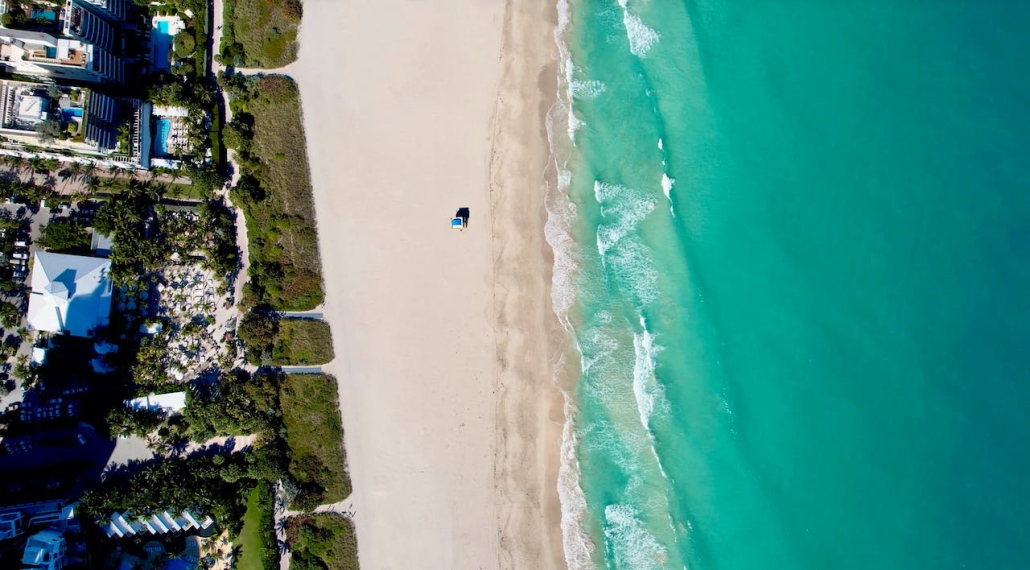Whether you’re a retiree seeking a tranquil oasis or a young family looking for outdoor activities, Florida has something for everyone. Florida’s reputation as a haven for sunseekers is well-deserved, with its beautiful beaches, vibrant cities, and a wealth of natural attractions. But before you leap, there are crucial factors to consider. We’ll provide valuable insights, tips, and advice to help you make an informed decision. Also, we’ll help you navigate the process of relocating and buying your dream home in the Florida sun.
Finding the right real estate opportunity in Florida
Finding a home in Florida when moving from out of state can be an exciting but challenging endeavor. However, a real estate agent can provide invaluable insights, show you potential properties, and negotiate on your behalf. If possible, plan a trip to Florida to view properties in person. That will allow you to get a feel for the neighborhoods and assess the condition of the homes. Think about your lifestyle preferences and priorities.
Do you want to be close to the beach, have access to good schools, or live in a gated community? Your answers will help narrow down your search. If you have children, research the quality of local schools and their proximity to potential homes. Online resources and speaking with local parents can be helpful. Florida’s real estate market can be competitive, so be ready to act if you find a property you like. Having your financing in order and being pre-approved for a mortgage can give you an edge. Once you’ve found a potential home, assess its condition thoroughly by hiring a reputable home inspector.
Legalities of moving to Florida
Moving to Florida involves navigating various legalities that newcomers should be aware of. You must reside in the state for at least 183 days yearly to establish a Florida residency. That is vital for enjoying tax benefits and in-state tuition rates for students. Secondly, within 30 days of moving, obtain a Florida driver’s license. You’ll need to provide proof of identity, your Social Security number, and evidence of residency to obtain the driver’s license.
Simultaneously, your vehicle’s registration must be transferred within the same timeframe, necessitating proof of insurance and a vehicle inspection. Furthermore, after relocating to Florida, it’s crucial to review and update essential legal documents such as wills and power of attorney. State laws can differ, and consulting a Florida attorney is advisable to ensure these documents align with Florida regulations.

Weather in Florida
Summers in the Sunshine State are typically characterized by sweltering heat and high humidity, with temperatures averaging between 80 and 95°F (27 to 35°C). Refreshing afternoon thunderstorms often punctuate these warm months. On the flip side, winters in Florida are relatively mild, boasting temperatures that fall between 50 and 70°F (10 to 21°C).
That makes it an enticing haven for snowbirds seeking refuge from colder northern climes. However, the northern regions of the state occasionally witness frost and even freezing temperatures during this season. Florida’s vulnerability to hurricanes is a notable aspect of its climate, primarily during the hurricane season from June to November.
Preparing for Florida weather
Hurricane season, which spans from June to November, requires preparation with a supply kit, evacuation plan, and knowledge of evacuation routes. During the hot and humid summers, opt for lightweight, breathable clothing to stay cool. Sudden downpours are common, so keep an umbrella and waterproof gear handy. Ensure your home has effective air conditioning to escape the heat indoors.
Given the potential for heavy rainfall and storm surges, consider securing flood insurance. Stay informed with local weather forecasts and alerts, especially during hurricane season. In the northern parts of Florida, occasional cold snaps can occur in winter, so having warm clothing available is advisable. Lastly, schedule outdoor activities in the cooler morning or evening to avoid the heat and sun exposure.

Budgeting when buying your dream home in the Florida sun
While Florida is often perceived as an affordable state, it’s best to research specific areas, as costs can vary significantly. Hidden costs of moving to a warmer climate can catch you off guard, so consider expenses like property taxes, insurance (especially flood insurance), and association fees if you’re moving to a gated community or condo. Common expenses include utilities, transportation (Florida’s size may require more driving), and childcare or school fees if you have children.
Start by documenting your current expenses and comparing them to Florida’s cost of living. Remember the one-time moving costs like hiring movers, transportation, and temporary housing. Don’t forget to allocate funds for potential emergencies, such as unexpected home repairs. Research financial incentives, like tax breaks, Florida may offer to new residents. Establish a financial cushion for the transition period, as finding a job or settling into a new routine may take time. Seek advice from experts or friends who’ve made a similar move.
Planning the relocation to Florida
Moving interstate to Florida from a colder climate can be exciting and challenging. So, plan and book your moving company well in advance, as Florida is a popular destination for relocation. Find and hire trusted interstate movers in Florida to help you move seamlessly and on schedule. You can make a checklist of all the important tasks, such as decluttering and labeling, to stay organized.
When packing, prioritize lightweight clothing, swimwear, and beach essentials, as the Sunshine State boasts warm weather year-round. Pack winter clothes separately and label boxes. Don’t forget sunscreen and bug repellent, as Florida’s climate can be harsh on your skin. As for furniture, consider what you’ll need in the tropical setting, and sell or donate items that won’t be practical.

Make a complete plan for buying your dream home in the Florida sun
Overall, buying your dream home in the Florida sun is an exciting venture with endless possibilities. The Sunshine State offers a diverse range of lifestyles, from bustling cities to serene coastal communities. Whether you’re seeking warm weather year-round, a thriving job market, or a relaxed retirement destination, Florida has something to offer everyone. However, do your due diligence when moving to a warmer climate. That can include researching neighborhoods and understanding the unique challenges of the Florida climate, such as hurricane preparedness.





